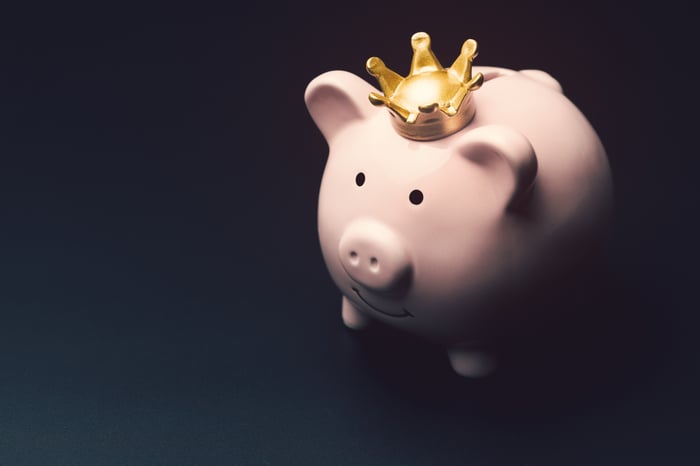The Federal Reserve raised interest rates 75 basis points last week for an unprecedented fourth time. Federal Reserve chairman Jerome Powell has indicated it's not so much what future rate increases will be, but how high and for how long they must be elevated to break inflation.
"It's very premature, in my view, to talk about pausing our rate hikes. We have a way to go," he told reporters. "And incoming data since our last meeting suggests that the ultimate level of interest rates will be higher than previously expected."

Image source: Getty Images.
That means we may suffer through the highest inflation rate in 40 years for years to come. It certainly doesn't bode well for expectations of a booming stock market, let alone the economy. Yet it also shouldn't mean investors should fold their tents and go home. Downturns mark the best time to buy stocks because expensive ones are now cheap and bull markets invariably follow bear markets.
But it requires discernment on the part of investors, and it's one reason I invest almost exclusively in income-generating companies. Dividends are a vote of confidence that the long-term growth story of the business remains intact while softening the blow of any lack of capital appreciation. The following pair of S&P 500 stocks not only have long-term growth potential, but they provide above-average dividend yields.
1. Altria
Tobacco giant Altria (MO 0.06%) is faring better than most of its index component peers, trending only 4% lower since the start of the year, and it's 13% above the low point hit in September. Although cigarette smoking is in a decades-long secular decline, the potential for smoke-free reduced risk products to be a big revenue producer remains strong.
Inflation is forcing smokers to trade down to discount brands, though Marlboro still commands a dominating 42.6% share of the market. Yet Altria is able to post remarkably strong profits because of its ability to raise prices several times a year to offset its own higher costs, as well as increases in taxes.
Now it's entered into a long-term agreement with Japan Tobacco to reenter the electronic cigarette market, by introducing new reduced-risk products to the U.S. market and taking Altria's own devices to foreign markets for the first time since it spun off Philip Morris International.
While the one drawback to the new joint venture is that the first products won't be introduced until 2024, there's substantial opportunity for it to gain significant share due to Altria's distribution strength and reap new revenue opportunities overseas.
The tobacco stock has paid a dividend for decades and raised it 57 times over the last 53 years, making it a Dividend King. The payout, which has risen at an average 5.5% rate for each of the last three years, currently yields 8.3% annually. Altria maintains a policy of paying out about 80% of its adjusted earnings as dividends, and with one of the highest yields, Altria is a shining star of the S&P 500.

Image source: Getty Images.
2. Amcor
Amcor (AMCR 0.53%) is a company you may not be familiar with, though it's likely you use its products regularly, if not daily. While its history dates back to the 1860s, the Amcor of today is the result of a merger between two packaging giants, U.K.-based Amcor and U.S.-domiciled Bemis. Amcor makes flexible packaging for food, beverage, pharmaceuticals, and personal-care products.
While a recession plagued by stagflation sounds like it could be a problem as consumers cut back on purchases, because they also tend to buy smaller-sized items to make their money go further, it actually results in a need for more packaging. It's one of the reasons Dow cites for its own continued growth, as there is a need for more polymers among packaging companies.
Fiscal first-quarter sales rose 9% to $3.7 billion, while adjusted earnings were up 10% from last year. Amcor reaffirmed its outlook for the current fiscal year of 3% to 8% while also expecting adjusted free cash flow of as much as $1.1 billion. It notes the business "consistently generates significant annual cash flow, providing substantial capacity to reinvest for future growth and to return cash to shareholders through an attractive and growing dividend and regular share repurchases."
Amcor is guiding toward $400 million worth of share buybacks this year, and it just raised its dividend 2.1% to $0.1225 per share. It has increased its payout, which yields 4.3% annually, for over 25 consecutive years, making it a Dividend Aristocrat.
Its stock is down less than 8% in 2022 because it is a solid business that stretches across numerous strategic industries. That gives Amcor a strong bias toward continued upward growth.





